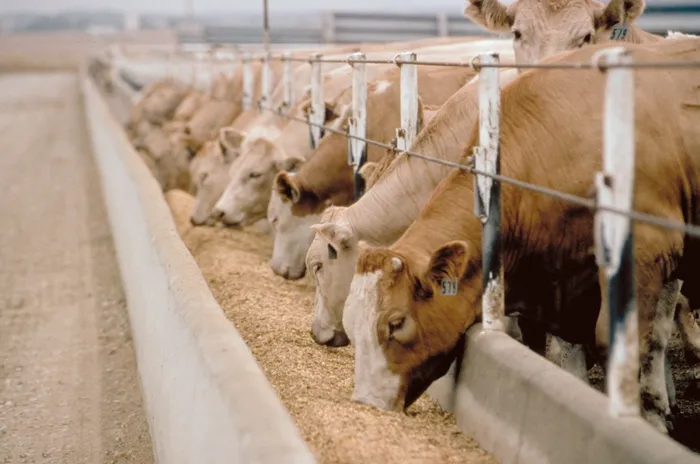Foot-and-Mouth Disease outbreak leads Cape Town butcher to warn of beef shortage

The Department of Agriculture is seeking new methods to manage the foot-and-mouth disease outbreaks.
Image: File
Good Hope Meat Hyper, a popular butchery in Cape Town, has warned of a potential beef shortage following a confirmed case of Foot-and-Mouth Disease (FMD) at the Karan Beef feedlot in Heidelberg, Gauteng.
Among the city's largest meat retailers, Good Hope Meat Hyper issued a statement urging customers to shop responsibly, as supply constraints may temporarily affect the availability and pricing of beef products.
Known for its wide range of Halaal-certified and high-quality meat, the business reassured customers that it is working around the clock to source alternative supplies and maintain stock levels.
While the situation continues to evolve, the retailer emphasised that customer safety and product quality remain top priorities.
“In response to the outbreak, precautionary quarantine measures have been implemented, and while containment efforts are under way, this may lead to a temporary shortage of beef products across the market,” Good Hope Meat Hyper said.
“We understand that this news may raise concerns, and we want to reassure our loyal customers that Good Hope Meat Hyper remains committed to sourcing safe, Halaal, and high-quality meat.
"We are actively working with alternative suppliers to secure stock and minimise disruptions wherever possible.”
The retailer has called on customers to be understanding of potential price fluctuations and product availability in the coming weeks.
“We urge our customers to shop responsibly during this period and understand that availability may be limited and prices may fluctuate due to reduced supply. We appreciate your patience and continued support as the industry navigates this challenge.”
The warning follows a public announcement by Karan Beef, South Africa's largest beef producer, which has confirmed a case of FMD identified at its Heidelberg feedlot.
The facility was placed under pre-emptive quarantine on Friday, after a suspected infection was flagged.
Laboratory results confirmed the presence of the disease on Monday.
In its statement, Karan Beef said: “This unfortunate development highlights the ongoing risks faced by the livestock industry, even under rigorous control systems. Karan Beef is working closely with State Veterinary Services to ensure swift containment and to minimise any further risk to the broader industry. As always, we remain committed to transparency, compliance, and maintaining the highest standards of animal health and welfare.”
FMD is a highly contagious viral disease that affects cloven-hoofed animals.
While it does not pose a direct threat to humans, it has serious implications for trade, livestock movement, and food supply chains.
In light of the outbreak, national authorities have activated emergency protocols to contain its spread and limit market disruption.
Agriculture Minister John Steenhuisen said intensified efforts by the department are beginning to show results, with two provinces - the Eastern Cape and Limpopo, expected to have their disease management areas lifted in the coming days.
At the same time, a R72 million emergency order for FMD vaccines has been placed, with delivery of the next batch expected by mid-June.
The department has projected a total requirement of R1.2 billion for the 2025/26 financial year, with each vaccine dose estimated at R100.
Steenhuisen said the department is also focusing on improving animal traceability, auction monitoring, and on-farm biosecurity.
“The office of the Deputy Director-General has engaged with veterinary services and various industry representatives to detail the actions required to curb the threat,” Steenhuisen said.
“Biosecurity, traceability, and record keeping are essential, and a new directive will soon be issued to address these issues.”
While progress has been made in controlling earlier outbreaks, Gauteng has now recorded new FMD cases, including at the Heidelberg auction and in communal herds in the East Rand.
The Department of Agriculture has urged all farmers to isolate new livestock for at least 28 days, even with health certification, and to report any clinical symptoms immediately.
Cape Argus
Related Topics:
